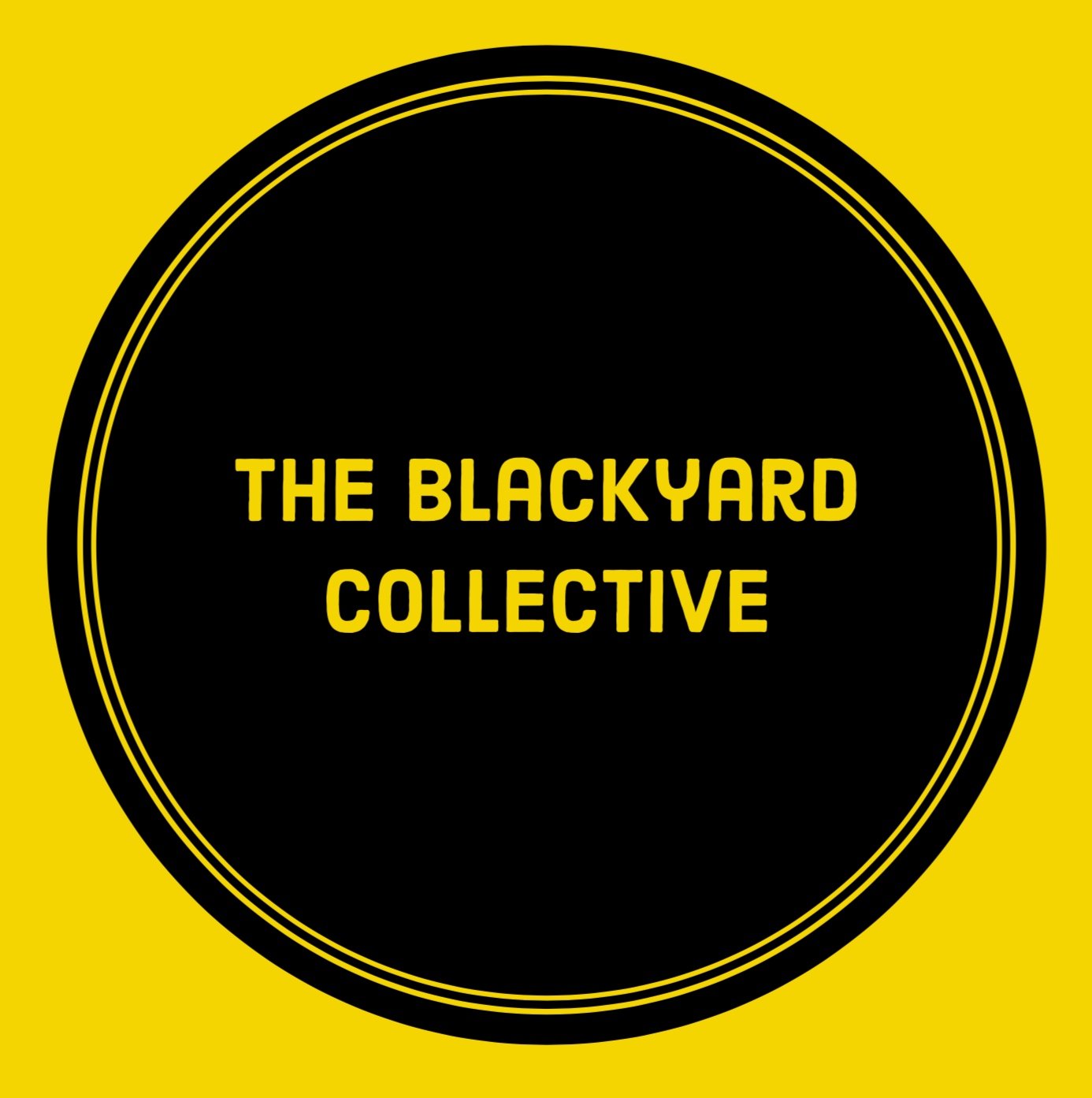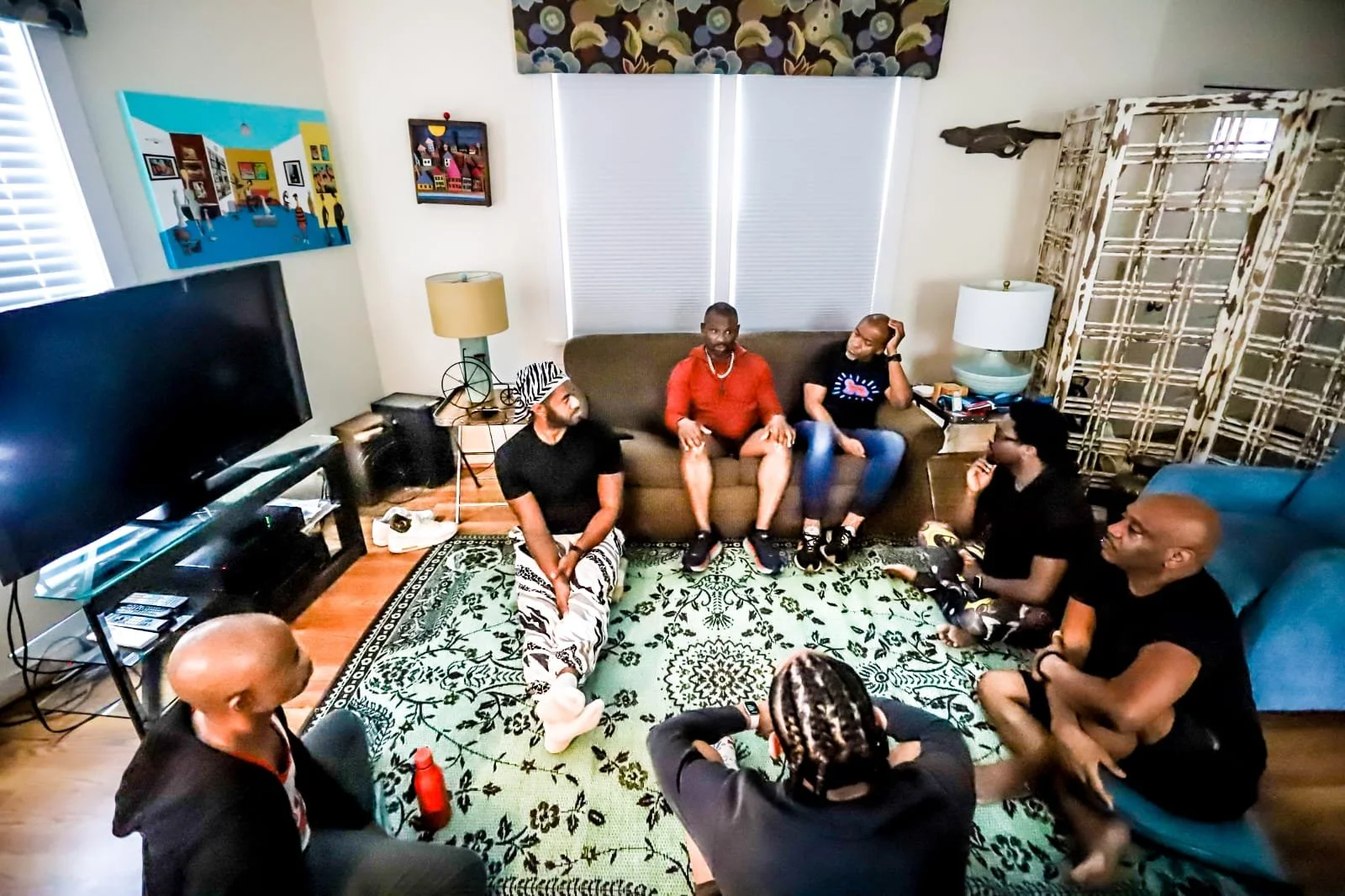Healing Together in a World Without Many Spaces for Black Healing
It’s not just that The Blackyard Collective helped me find my voice, but also that this group of Black queer folks helped me believe my voice mattered, and gave me the confidence to share my voice with others. I have been sitting with profound gratitude since the 2023 Blackyard Collective Fall Retreat in Provincetown, MA, reflecting on how my life has changed since connecting with these sober friends, who have now become family.
I had been sober for about six years when we had our first brunch of a few Black queer folks in recovery. I was nervous; we were all nervous. It’s the paradox of life that sometimes the thing we most want can be the thing we most fear. Connection. Being seen. Being heard. Allowing ourselves to be seen and heard. Trusting that I am enough just as I am, worthy of being loved.
Those were things I dreamed of, but was afraid of making a reality. What if I tried to open up and connect, for the first time in my life and it wasn’t successful? Did I even know how to be real, after a lifetime of hiding my true feelings? What did I have then? I brought all of that into that first brunch: a lot of fears. What I took away was the knowledge that I wasn’t alone in my fears.
The struggle with internalized racism wasn’t just mine. The rage that I sometimes felt but didn’t know how to express for fear of being seen as The Angry Black wasn’t just mine. Others understood that the drugs made me feel good, but they also helped me not feel.I was able to escape into a world where I didn’t feel my Black queer existence was a problem.
As the monthly brunches grew, so did my voice. I started talking about things I’d had shame about, including my abandoned education, and my former dreams of being a writer. I had always held these things back, fearing how I’d be judged. Instead, I’d spent a lifetime with a mask, which was now being lowered.
The group encouraged me, saying my voice and how I saw the world was important. I should go back to school, they told me. I wanted to go back into the background. “ My time has passed,” I told them, but they wouldn’t let me make myself small.
I applied to college and I got in, with a full scholarship. For the next two and a half years I went to school during the day, and waited tables at night, wanting to give up. I didn’t. They wouldn’t let me. They held me up.
At school, I was learning my writer’s voice, but our brunches were helping me discover my “feeling and being” voice. It’s a journey to knowing what your real voice is, when you live in a world where you’re told that success requires you to hide parts of yourself. I was now writing about race, shame, addiction, and other things I’d kept secret. It was liberating. I graduated with a 4.0, an achievement shared with my entire Blackyard Collective family.
Our sober tribe was expanding. During the pandemic, it became a virtual meeting, and we later started having in person get-togethers, where Black people from all over the country, and Canada, were coming to connect and discover their own voices. It wasn’t about Black trauma, not at all. It was and is about Black joy, liberation, and perseverance.
We dance, we laugh and sometimes we cry. That is the Black experience. We have celebrated relationships beginning and consoled each other when relationships have ended. Many of us, including myself, have lost a parent, and we have talked about grief, sadness, and loneliness.
That first Provincetown retreat , in 2021, was pure Black magic. There are no words to convey how it feels to walk down the main street of a mostly white town with thirty other Black queer people. We laughed loudly, and we celebrated our Blackness and Queerness loudly and unapologetically. On the last day, we shared our gratitude and our dreams and fears. In that beautiful guesthouse, where African masks covered the walls, we vowed that with each other we would do our best to take down our own masks.
This past October was the third annual Blackyard Collective Fall Retreat in Provincetown. I knew beforehand that my latest article, for Huffington Post, would be coming out that weekend, which felt like a perfect full-circle moment. On Saturday morning, I led a morning meditation group. Eight of us shared a meditation where we connected to our past childhood selves, our present selves, and our future selves. We opened up to each other, and cried with each other, both for past pains and fears, but also tears of gratitude that we now had a place to talk about all of this. We closed the hour hugging in a circle, embracing the energy we’d created and could use as fuel when we were struggling. That’s what these retreats have become - the deepest of connections and joy held in our hearts and souls to access when our hearts are hurting.
I left the meditation high from the meditation, head down, lost in thought.
“Hey, Mr. Huffington Post!”
I looked up, startled. Don, the owner of the guest house, was sitting outside, grinning at me. He’d been scrolling the news on his phone and came upon my article. It couldn’t have been more perfect. The first person to comment on the article, which was about my own complicated relationship to race and bias, was a man instrumental in creating a space for me to have first talked about these things. We sat together, marveling at how our lives have blossomed in sobriety in general, but especially in this Black queer space.
The response to that article was a lot. In two hours, there were more than 200 comments, many of them very negative, some even cruel. Discussion of race and bias in this country can color an opinion even before the words are read. At our noon meeting, I opened up about the emotions I was feeling, and once again I was held up, and I was heard.
Not everyone is going to like my voice. I’m okay with this today because I know my voice is mine but it's also the voice of so many who have felt unseen and unheard and who started to
believe that maybe their time to shine has passed and they should be resigned to staying in the background.
After the article was picked up by other news organizations, it was read by over 750,000 people with more than 7,000 comments. There were some very awful ones, telling me I should be waterboarded or physically hurt. But I also got countless messages of support and connection, those who said my voice was also their own relating their own experiences.
This is my story of finding my voice and one I’m grateful for. What makes me even more grateful, though, is at our Blackyard Collective events when I see another Black queer person experiencing addiction start to open up and connect with others and themselves. The light starts shining bright in their eyes, knowing they are getting something they didn’t know they needed.
As one person said, after their first time at one of the events, “I can’t get over seeing all these Black faces, smiling and celebrating with each other, knowing each one of us has reached a dark place of isolation and pain, and now we are healing together in a world without many spaces for Black healing.”
No person is an island, it’s commonly said. It's crucial for humans to connect for us to truly live. But when you’re adrift for so long, it’s easy to believe you always will be. The Blackyard Collective helped me find love within myself, for the first time in my life, instead of searching for it in others. For a queer Black kid who would slap his face int the mirror, calling himself ugly because of his wide nose and lips, learning to love all parts of myself has been a freedom beyond my wildest dreams.


